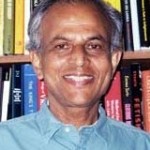by H.L. Seveviratne, ‘Colombo Telegraph,’ January 30, 2016
We frequently hear politicians declaring that they will follow the steps of the ancient kings who always ruled according to the advice of the Mahasangha. This is a vague generalization that has no historical or scientific validity.
When we look at our history we do not find a continuing centralized system either in the political domain or in the religious. In the political domain what we see is a constant power struggle, as seen in the frequency of violent succession, often by killing family members or close kin.
And, the political system was an oscillating one between a temporary centralization and its inevitable end in the break up of the system into warring groups. The story that we had a unitary (ekeeya) state in ancient times is a myth. We never had a unitary state until British rule unified the country. Indeed there was none anywhere in the world until the rise of the modern nation state starting about two centuries ago.
The religious domain was similar, and if any, even less centralized than the political domain, because, monks had no coercive power, and were totally dependent on the king for any centralization they had. Factions of monks competed to get the favour of the king, and our history is full of stories of kings purging the Sangha (called purification, sasana visodhana), at the instigation of the faction that got the favour of the king.
There was nothing called a unitary and monolithic “Mahasangha”. A non-existent thing cannot give advice. “Mahasangha” here simply means a faction of the monks. And any “advice” they gave was not a one way thing, like from a person who can advice to a person who needs advice. It was no more than participation in intrigue against the enemy factions.
Another meaning of “advising” is, goading the king to do the bidding of the monk faction for their benefit. This is a general feature of the feudal political order of pre-modern times when elites, both lay and monastic, formed factions and operated for their benefit, and supported whoever the king was who was willing to reciprocate.
What this means is that the picture in our “glorious ancient times” is the same as what we see today. There are groups of monks who get round groups of politicians and they try to get politicians to do what they want. These are two fold, (1) to get as much material benefits as they can get from the politicians, especially those in power, and (2) to established the hegemony of the Sinhala Buddhist majority, and discriminate against the minorities, the purpose of which is also gaining more and more wealth and status, and bolstering their egos with long titles.
One other relevant point is that when these people talk about the advice of the Mahasangha, what advice are they talking about? To advice, one must have knowledge in the first place. They must have knowledge, at least basic knowledge, about what a modern democracy is, what a modern economy is, what the modern international system is like, and so forth. In sum, they must have the basic knowledge that can qualify them to be modern cosmopolitan citizens. I do not believe there is one single monk, certainly none among the monks with whom our politicians interact, who would have the basic qualifications to give any meaningful advice.
Why should politicians need advice anyway, to do the job they are elected to do? If they need real advice, they can get it from qualified persons, like economists, biologists, engineers, lawyers and so forth.
Our monks have no such expertise. They can only talk platitudes and racist slogans. If we are to go by their advice, what we will end up having is an economically bankrupt, racist, ignorant, dictatorial society. The real story behind the talk about “advice” is to bring back such a society, that we had under the Rajapaksas. The more we keep the Mahasangha away from politics the better for the people.
Professor Emeritus, University of Virginia, USA
Also see H.L. Seneviratne on ‘State of Violence in Sri Lanka,’ January 2009 – https://www.youtube.com/watch?v=0gGOQHOdz_Q
